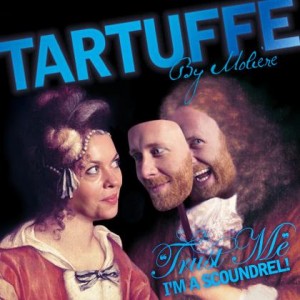OK, I have already made a facebook page for us and suggested some sessions, but I got this idea today and thought I would throw it out there.
I am going to be teaching World Literature next semester, a class I have never taught at this school. On their exit exam is Tartuff, which I have never even read, lead alone taught.
I thought it would be fun, as a kind of “Iron Chef” challenge, to ask that we do a session on digital humanities solutions to teaching Tartuff.
How can I make it interesting, relevant, and make sure my students know the text as well as they possibly can?
Maybe everyone can come with their favorite programs, ideas, and teaching suggestions. What do you think?



Intriguing. I am a lousy chef, though. (Tartuffe? what a …. peculiar choice.)
B”H
Well, I thought it would be fun to just bring ideas–even if you don’t want to read Tartuff! Any “teaching lit” sites, software, etc. is welcome . . . and if there is something Tartuff related, well, that would work too!
🙂
I love this idea. Is anyone coming who teaches French lit – in French, I mean? It’s been a long time since I read Tartuffe in French. (I do think it’s a little bit of an odd requirement, but I also kind of love that someone is requiring it, and it’s wicked funny.)
Sadly, I don’t know that I’ll have much time to work on finding resources. Could we do that as part of our time at camp?
Can someone please explain what an “Iron Chef Challenge” is for those of us who don’t watch the Food Network? Much appreciated!
B”H
Basically, the chefs meet in two parallel well-stocked kitchens. Then, the host presents a central ingredient that they must base their cooking upon, and they cook–trying their best to make the best-tasting, most imaginative, and interesting uses of that ingredient. They have a set amount of time to complete their task. At the end, a panel of judges gives their impressions of the chef’s creations, and assigns it a score.
I was riffing off of this idea by suggesting we bring our “well stocked kitchens” of technical and literary knowledge to focus upon the central ingredient of teaching Tartuff.